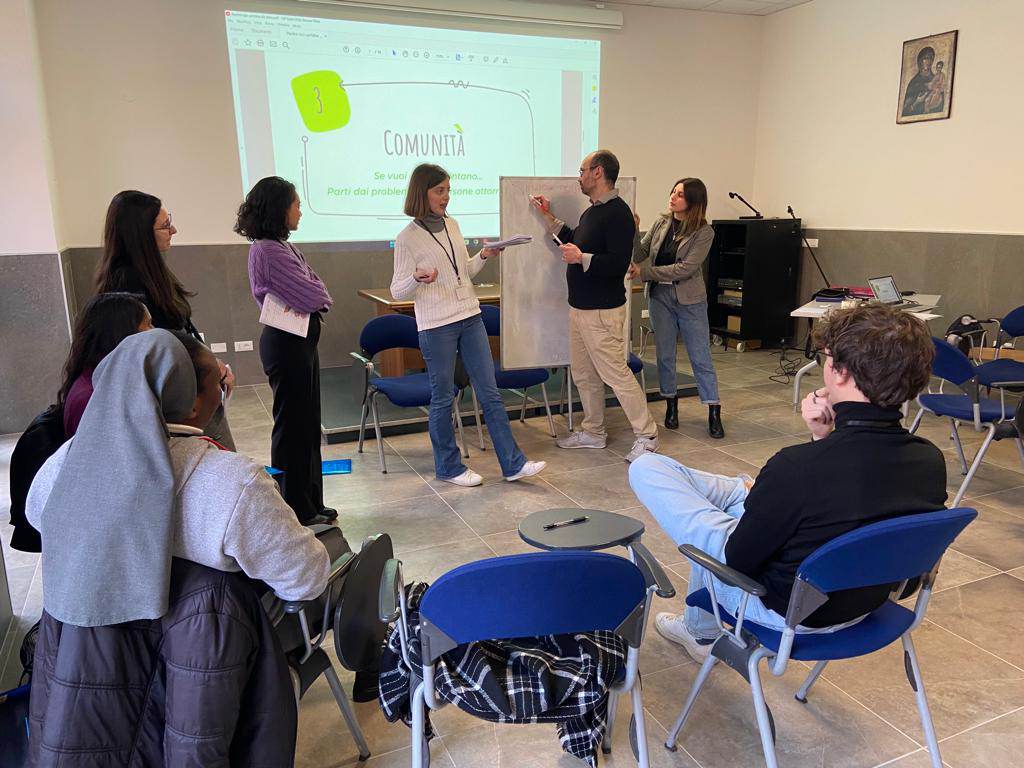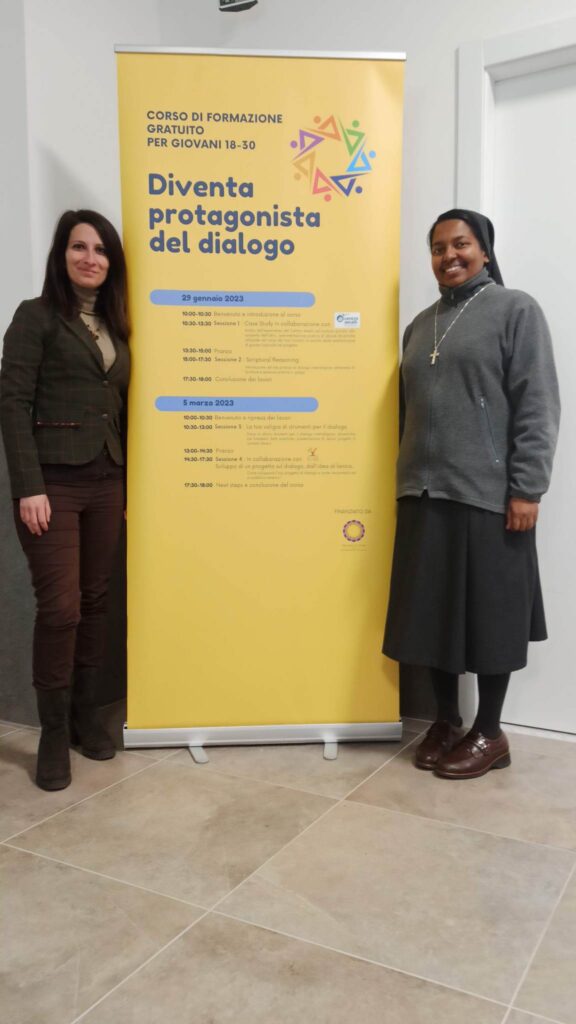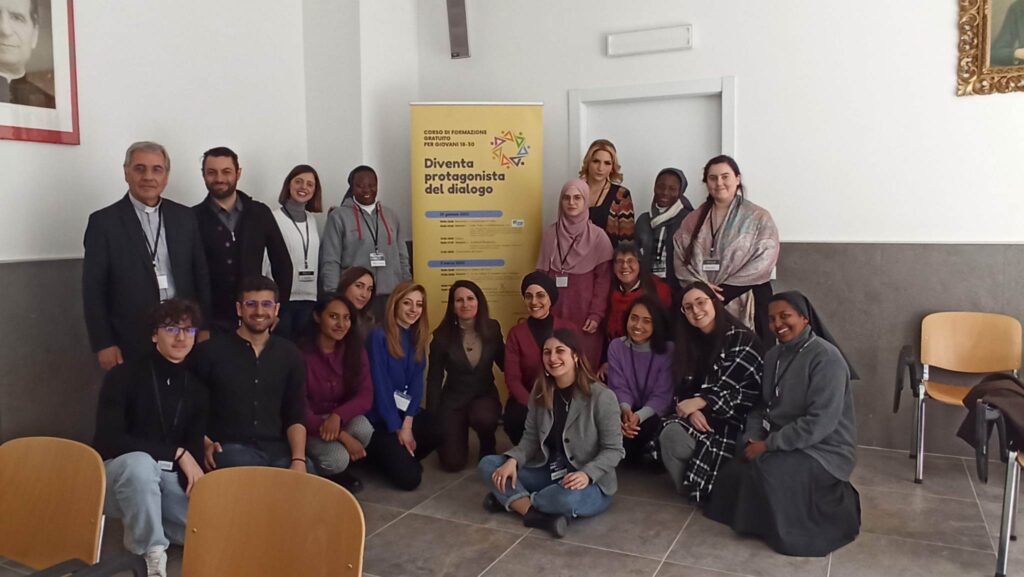“So often, young people are just invited to interreligious gatherings, but very rarely are they the ones organizing them,” explains JPII Leader and Senior Program Manager Elena Dini (Cohort VII, Italy). With Diventa Protagonista del Dialogo, a project supported with a grant from the JPII Center, Elena intended to create a different kind of interreligious gathering that puts young people at the center: to allow them to “become protagonists of dialogue.”
Held in four sessions across two days and structured thanks to the collaboration of other local organizations and people of different communities engaged in dialogue around Rome, Diventa Protagonista del Dialogo offered young people of different faith backgrounds the chance to come together in Rome. “I wanted this opportunity to be not only for people in big cities but also for people living in smaller places,” says Elena, who ensured that resources were allocated to make it possible for youth to join from cities and villages neighboring Rome.

This program helped young people develop their religious literacy and interreligious dialogue skills through interactive case studies, scriptural reasoning workshops, and project planning. “The idea was to give them a toolbox—what can be more effective in one situation or the other,” explains Elena.

It was crucial for young people from Muslim, Christian, and Jewish backgrounds to come together and increase their familiarity and literacy around other faith traditions in a youth-centered setting. “I was surprised because I never read the Torah,” explains a young Muslim participant to the Osservatore Romano, the Vatican newspaper that published an article about this course, “We had the possibility of expressing our thoughts in a safe space while listening to thoughts different than mine that I would have never imagined.”
A Christian participant was thrilled by the chance of meeting young Jewish people: “Meeting the Jewish community was an intense experience. They explained the different approaches and their internal diversity.”
What’s more, beyond these workshops and trainings, participants had the opportunity to create their own projects and initiatives—to truly step into the role of a protagonist in critical interreligious dialogues. “We already have some initiatives that have come out of this network that we created,” shares Elena, “and this is really inspiring.”

